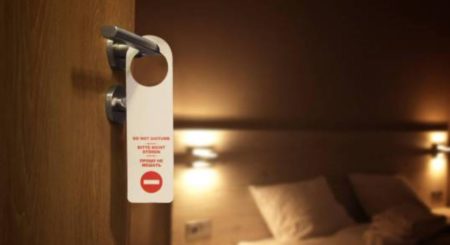
A charity revealed how Cork hotels are becoming increasingly vulnerable to child sex trafficking.
JP O’Sullivan from MECPATHS (Mercy Efforts for Child Protection Against Trafficking with the Hospitality Sector) shed light on how the organisation’s training led to the rescue of a child in a Cork hotel.
Established in 2013 by the Sisters of Mercy, MECPATHS offers training to help those in the hospitality industry pinpoint signs of child trafficking.
He referred to one recent incident by way of explanation. “We have volunteers visiting hotels all over the country, but this one just so happened to be in Cork,” he said.
“We wanted to establish a connection so asked if it was possible to speak with management. They explained to us that there was no need as this was an independent hotel and all the guests were known to them. However, they did promise to follow and read up on the material.”
JP never anticipated the difference that encounter would make.
“Two weeks later a phone call came through from that same hotel. Staff had read the material we gave to them and identified the warning signs in relation to one of their guests. The police were informed and it turned out that particular guest had been using the hotel for the exploitation of a child. In that situation, it was felt there was something not quite right. The Gardaí intervened and it transpired the staff member’s gut instinct was correct.”

He explained the importance of the project adding: “The core aim of this project is to raise awareness about what is hidden in plain sight. There is a great will among the Cork community to learn more and understand so that they are in a position where they can identify people at risk. Cork is a city of sanctuary, so there is a great willingness among hotels to implement the right procedures and policies to protect their guests.” Mr O’Sullivan said that human trafficking can take many forms.
“The traditional view of the victim being locked away in a room and tied to a radiator no longer stands. These people are in our own communities and walking amongst us on the streets. A person doesn’t need to cross borders or continents for it to constitute trafficking.
The definition of what constitutes trafficking is if someone is moved from one side of the street to the other for the purpose of exploitation and generating profit.
The important thing to emphasise is that hotel staff are not in any way involved in the exploitation. Hotel rooms can, however, be used for the purpose of corridor trafficking.
This is due to their anonymity and privacy which can be said of both rural and city hotels.” He said that reporting suspected child abuse isn’t just the responsibility of hotel staff.
“We all have a responsibility to report any incidents we find suspicious or alarming. People are now realising that this isn’t something that’s just happening at the other side of the world. It’s also happening in our own backyards.”
He warned hotel owners and their staff about the indicators to watch out for.
“The general signs are normally distress, anxiety or restricted, controlled communication. The potential victim may be being treated in a demeaning or aggressive manner. Housekeeping staff, in particular, have the opportunity to spots signs of trafficking. Some of the signs we tell staff to look out for are “do not disturb” signs on the door for days on end, camera equipment, excessive technologies or drugs and alcohol in the room.
“It may be the case that there are items of children’s clothing in the room, even though a child hasn’t been registered. Often the lead party won’t be forthcoming with their home address or full name.”
A number of Cork businesses have availed of training from the charity to date including the Maldron hotels, the Trigon Hotel Group, among others. Mr O’Sullivan said that he would like to see as many Cork hotels as possible get involved in the initiative which is free of charge.
For more information on MECPATHS visit http://www.mecpaths.com or email Info@mecpaths.ie. The charity can also be contacted by phone on 01-4673737
This article was first published in the Echolive.ie and was written by Sarah Hogan




